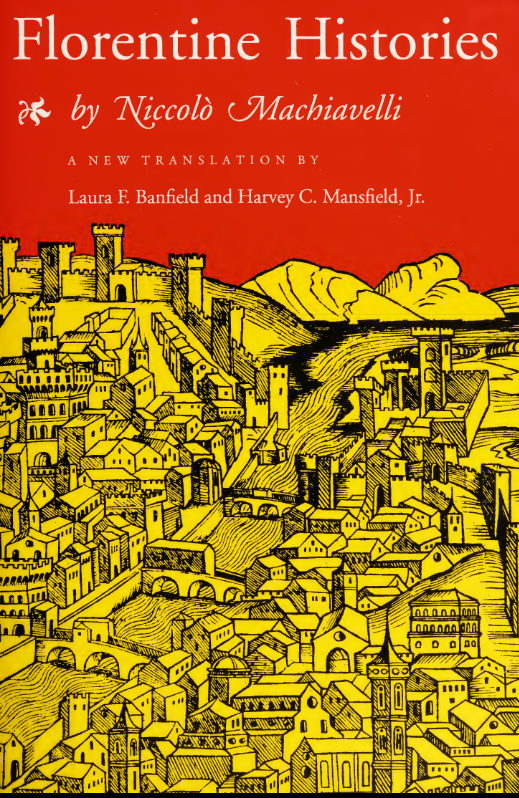Newly released
This book is new and will be uploaded as soon as it becomes available to us and if we secure the necessary publishing rights.

Florentine Histories Book PDF
(0)
Author:
Niccolò MachiavelliNumber Of Reads:
71
Language:
English
Category:
fieldsSection:
Pages:
0
Quality:
excellent
Views:
855
Quate
Review
Save
Share
Book Description
This is a new translation of Machiavelli's study of Florentine history, which (according to Booklist) "aims to supply contemporary readers with a literal, exact, and readable version of the original... charting the story of Florence and its leading families." Includes the translated text and accompanying notes.
"For: three hundred years the Florentine Histories have been regarded with veneration by the scholars of Europe. It is one of those few works to which the judgment of successive generations has assigned a high place in the annals of the world. It has been consulted by the student of History to explore the majestic ruins of the Roman empire, for the origin of all modern states-by the philosopher to trace the progress of light and liberty, as they travelled down through the gloom of the middle ages by the vindicators of man and of truth, to read the story of their servitude, their struggles and their triumphs."
Niccolò Machiavelli
Niccolò di Bernardo dei Machiavelli (Italian 3 May 1469 – 21 June 1527), occasionally rendered in English as Nicholas Machiavel,was an Italian diplomat, author, philosopher and historian who lived during the Renaissance. He is best known for his political treatise The Prince (Il Principe), written in about 1513 but not published until 1532.He has often been called the father of modern political philosophy and political science.For many years he served as a senior official in the Florentine Republic with responsibilities in diplomatic and military affairs. He wrote comedies, carnival songs, and poetry. His personal correspondence is also important to historians and scholars of Italian correspondence.He worked as secretary to the Second Chancery of the Republic of Florence from 1498 to 1512, when the Medici were out of power.Machiavelli's name came to evoke unscrupulous acts of the sort he advised most famously in his work, The Prince.He claimed that his experience and reading of history showed him that politics have always been played with deception, treachery, and crime.He also notably said that a ruler who is establishing a kingdom or a republic, and is criticized for his deeds, including violence, should be excused when the intention and the result is beneficial to him.Machiavelli's Prince has been surrounded by controversy since its release. Some considered it to be a straightforward description of the evil means used by bad rulers; many read in it evil recommendations to tyrants to help them maintain their power.Even into recent times, some scholars, such as Leo Strauss, have restated the traditional opinion that Machiavelli was a "teacher of evil".The term Machiavellian often connotes political deceit, deviousness, and realpolitik. Even though Machiavelli has become most famous for his work on principalities, scholars also give attention to the exhortations in his other works of political philosophy. While much less well known than The Prince, the Discourses on Livy (composed c. 1517) has been said to have paved the way of modern republicanism.It has also significantly influenced authors who have attempted to revive classical republicanism,including Hannah Arendt
Book Currently Unavailable
This book is currently unavailable for publication. We obtained it under a Creative Commons license, but the author or publisher has not granted permission to publish it.
Rate Now
5 Stars
4 Stars
3 Stars
2 Stars
1 Stars
Florentine Histories Quotes
Top Rated
Latest
Quate
Be the first to leave a quote and earn 10 points
instead of 3
Comments
Be the first to leave a comment and earn 5 points
instead of 3